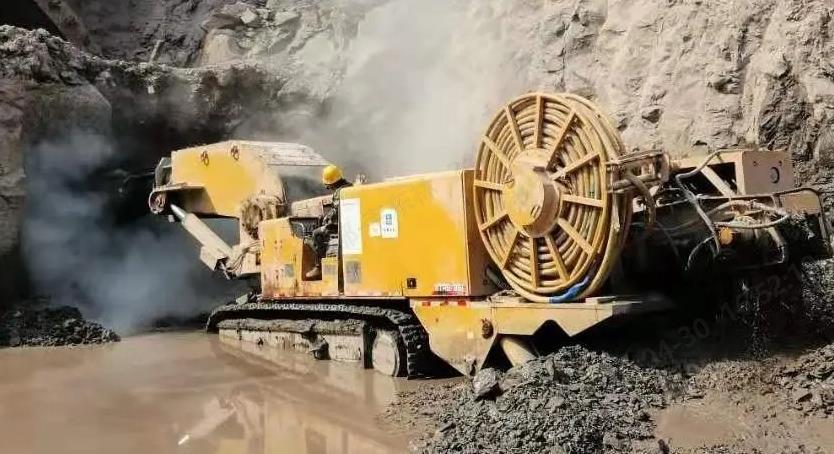TBM, short for Tunnel Boring Machine, is an engineering machine used for underground tunnel construction. Depending on different functions and designs, TBMs can be classified into various types. Here are some common types of TBM.

1. Hard Rock TBM:
Hard Rock TBMs are suitable for hard rock geology such as granite and limestone. They are characterized by sturdy construction, typically equipped with high-strength disc cutters and scrapers to withstand high-impact and abrasive rock conditions. The propulsion and support systems of hard rock TBMs are reinforced to meet the challenges of hard rock geology.
2. Soft Rock TBM:
Soft Rock TBMs are suitable for softer geological conditions like soft rock, clay, and sand. Their cutting heads are designed to be more flexible, usually equipped with replaceable cutters and scrapers, as well as adjustable cutting parameters to adapt to different geological changes. The propulsion and support systems of soft rock TBMs are relatively lightweight to accommodate soft rock characteristics.
3. Slurry Shield TBM:
Slurry Shield TBMs are suitable for weak formations with a high presence of groundwater, such as mudstone and silty soil. They use a slurry circulation system to balance the pressure on the cutting face, preventing soil erosion and collapse. The propulsion and support systems of slurry shield TBMs are specially designed to operate in slurry environments.
4. Hybrid TBM:
Hybrid TBMs combine the features of hard rock TBMs and slurry shield TBMs, making them adaptable to complex and changing geological conditions. They are usually equipped with adjustable cutting heads and slurry circulation systems, capable of working in both hard rock conditions and switching modes in soft rock or slurry conditions. The propulsion and support systems of hybrid TBMs are highly adaptable.
5. Mixed Ground TBM:
Mixed Ground TBMs are suitable for tunnel projects with complex geological conditions composed of multiple formations. Their cutter tools and TBM designs typically offer higher flexibility and adaptability.
6. Rectangular TBM:
Rectangular TBMs are suitable for non-circular tunnels requiring larger cross-sections, such as urban underground space development and pedestrian passages.
7. Dual-Mode TBM:
Dual-Mode TBMs can seamlessly switch between hard rock and soft rock modes, adapting to complex and changing geological conditions.
There are various types of TBMs, each with unique characteristics and applications. When selecting a TBM, it's essential to consider factors such as geological conditions, tunnel dimensions, construction environment, efficiency, and cost-effectiveness to ensure the most suitable TBM type for the project needs, achieving efficient and safe tunnel construction. With ongoing technological advancements, the performance and functionality of TBMs continue to improve, offering greater convenience and possibilities for tunnel construction.
